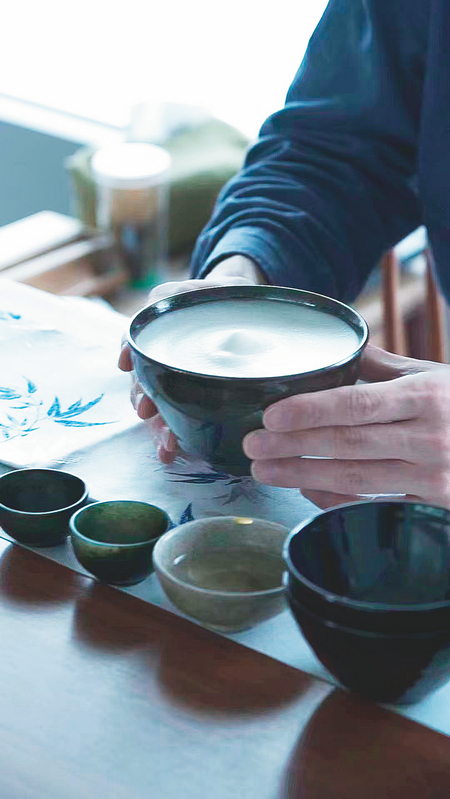Song in a cup


"It's fermented longer on the surface level and is relatively sweet, and the bubbles are white and fine," he says. "It's the tea that's closest to the description of dian cha of the Song Dynasty."
Han was curious about the patterns created on the tea foam, as recounted in ancient documents, and began his attempt at reviving the art form with the understanding that the froth resembles paper, while the tea paste is like ink. Despite a background in classical painting, applying the theory in practice proved to be quite different to how he had imagined.
"When it comes to traditional painting, it is about the soft brush against the hard paper, but with the tea, it is the other way round," Han says. "It's the hard teaspoon against the soft froth."
Some of his classical painting skills can be applied to tea, but require a degree of modification.
Han says he often goes to museums to observe Song paintings. "It has to be cautious work, but quick, before the froth dissipates."
Usually, the whole process has to be completed within 10 minutes. The ideal state is when the tea temperature is around 40 C, ready for the palate. It was through trial and error that Han got going. "Usually, it takes a year of practice for one to fully grasp tea-whisking."
Now, he can deliver a piece of tea-whisking art in "one take", including reproducing the well-known Eyes Embroidered with Plum Blossoms by Huizong.




































